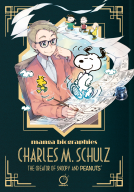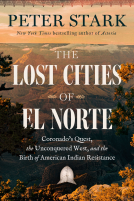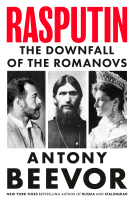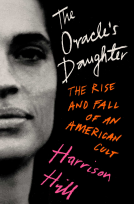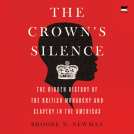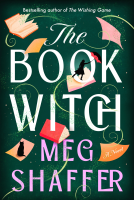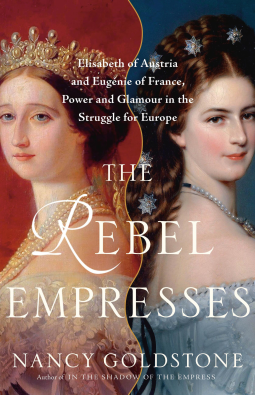
The Rebel Empresses
Elisabeth of Austria and Eugénie of France, Power and Glamour in the Struggle for Europe
by Nancy Goldstone
This title was previously available on NetGalley and is now archived.
Send NetGalley books directly to your Kindle or Kindle app
1
To read on a Kindle or Kindle app, please add kindle@netgalley.com as an approved email address to receive files in your Amazon account. Click here for step-by-step instructions.
2
Also find your Kindle email address within your Amazon account, and enter it here.
Pub Date Feb 25 2025 | Archive Date Mar 25 2025
Talking about this book? Use #TheRebelEmpresses #NetGalley. More hashtag tips!
Description
When they married Emperors Franz Joseph and Napoleon III, respectively, Elisabeth of Austria and Eugénie of France became two of the most famous women on the planet. Young and beautiful—becoming cultural and fashion icons of their time—they also played a pivotal role in ruling their realms during a tempestuous era characterized by unprecedented political and technological change.
Fearless, adventurous, and independent, Elisabeth and Eugénie represented a new kind of empress—one who rebelled against tradition and anticipated and embraced modern values. Yet both women endured hardship in their private and public lives. Elisabeth was plagued by a mother-in-law who snatched her infant children away and undermined her authority at court. Eugénie’s husband was an infamous philanderer who could not match the military prowess of his namesake. Between them, Elisabeth and Eugénie were personally involved in every major international confrontation in their turbulent century, which witnessed thrilling technological advances as well as revolutions, assassinations, and wars.
With her characteristic jump-off-the-page writing and in-depth research, Nancy Goldstone brings to life these two remarkable women, as Europe goes through the convulsions that led up to the international landscape we recognize today.
Available Editions
| EDITION | Other Format |
| ISBN | 9780316419420 |
| PRICE | $35.00 (USD) |
| PAGES | 640 |
Available on NetGalley
Average rating from 37 members
Featured Reviews
 Caroline F, Reviewer
Caroline F, Reviewer
This is the first time I've read a book by Nancy Goldstone, and I was suitably impressed. Besides making Elisabeth and Eugenie convincingly human, she takes in the entire sweep of European history in the 19th century, a time when all the royal families were related but this did not prevent them from constantly making war on one another.
She does fall prey, a little, to the modern historian's tendency to be cute and clever, but it's not terribly distracting and is usually confined to the chapter endnotes. I enjoyed, in a way, her remark that Napoleon III wanted to "make France great again." And it's 100% clear from reading this book that ignorant populations insisting on their vision of the world, instead of trying to understand reality, are not solely a feature of the 20th or 21st centuries.
What justifies writing about these two women together, when their lives only crossed at their ends, is that within the environments of their imperial courts they were constantly struggling against limitations placed by others, notably Elisabeth's formidable and autocratic mother in law, and against the conservative politics that tried to hold off democratic reforms that began to seem inevitable. It's kind of refreshing, at this moment in time, to read a fat history book in which the United States hardly figures at all. The closest we get is an elucidation of the sad 'emperor of Mexico' misadventure cooked up by France and Austria.
Goldstone makes all this look easy. Highly recommended for anyone who wants to understand Europe's history a little better.
I requested and received an eARC of The Rebel Empresses: Elisabeth of Austria and Eugénie of France, Power and Glamour in the Struggle for Europe by Nancy Goldstone via NetGalley. Having read some of Goldstone’s previous work, I was instantly drawn to this book when I saw that it was available for request. I’m pretty familiar Sisi of Austria, but admittedly only the larger and more dramatic incidents on her life. Her life has inspired countless dramatizations and captured the imagination of many history lovers. I had no previous knowledge of Eugénie, wife of Napoleon III, but was definitely excited to learn more about. Sisi and Eugénie were two of the most influential women in nineteenth century Europe and witnessed modernization, war, revolutions assassinations, while dealing with their own more intimate scandals and tragedies. In The Rebel Empresses, Goldstone explores their lives among the turbulence of a changing and conflicted world.
Goldstone is one of my favorite nonfiction writers! I absolutely fell in love with her writing style in The Daughters of the Winter Queen and she exceeds herself in The Rebel Empresses. Goldstone is able to imbue her subjects with such a vivacity that it is impossible to be disinterested in the rich history that she explores with Sisi and Eugénie. Names become people and personalities, while events become motivation and reasoning. Goldstone has a passion for history and a gift for storytelling that comes across in the text which is what makes reading and learning from her work such a rewarding experience. A highlight, for me, was a section about Sisi’s early life when Goldstone explores Lola Montez and her relationship with King Ludwig I. What an incredibly interesting person Montez was!
As the book follows Sisi’s adult and later life, it is difficult not to develop an affinity for the woman. Goldstone really captures Sisi’s irrepressible spirit and the difficulties she faced with her mother-in-law, Archduchess Sophie. There were parts that almost read like a bonkbuster. Someone placing the pamphlet, about Marie Antoinette used in as a warning and attempt to extort Maria Theresa, on her desk? It’s simply devious! I also enjoyed the way that Goldstone drew parallels between the experiences of Sisi and some modern royal women. There’s some really great, subtle commentary in there that I thought really resonated with recent history.
Similarly enthralling were the chapters about Eugénie’s young adult life. The teenage passions that Goldstone describes create a portrait of quite a fascinating young woman. As mentioned, anything about Eugénie was almost entirely unknown to me before starting this book, this is something Goldstone quickly corrected. Her family’s history was quite interesting, and her father seemed to cute quite a romantic figure. I was absorbed reading about her relationship with Louis Napoleon, particularly the early missteps. I think she emerges as an equally sympathetic figure as Sisi in some ways. The humiliation she must have endured given the obviousness with which Napoleon III conducted his affairs (the Countess of Castiglione and those opera exits! Eugénie left alone in her box! Can you imagine?)
Reading about her adult life was every bit as interest as reading about Sisi’s. There were several moments when I actually got quite tickled reading about certain incidents in her life (like teaching her son how to swim by throwing him headfirst into the sea) or the absurdity of Plon-Plon. My mirth, however, disappeared once I reached the concluding chapters about her life. The Rebel Empresses served as a marvelous introduction to Eugénie for me and I couldn’t help but feel a certain sadness as Goldstone explored her later years. Goldstone’s greatest skill, aside from the way she builds such strong personal narratives about her subjects, is the way she’s able to position history seamlessly throughout the accounts of their lives. When reading historical nonfiction, it is easy to feel bogged down in events, battles, laws etc. but Goldstone explores revolution, war, and more in a way that flows so nicely that it makes learning feel both fun and approachable.
This was a simply brilliant read. I've read most of Nancy Goldstones' books and this one was just as much of a pleasure as her previous works, I absolutely adore women writing about trailblazing individuals of the past, especially these days where there is far too much conservative drive to drive down that individuality. Goldstone does a fantastic job drawing individual portraits of these contemporary women, both unique in their push to make their own way in the 19th century, the time when women's rights really began to come alive,
Sisi and Eugenie in many ways are stuff of legend, of cinema and literary inventions, and yet Goldstone does a tremendous job not only making them both come to life, but more importantly come to life with their real stories told. That's an invaluable historical legacy to partake of.
 Caroline P, Reviewer
Caroline P, Reviewer
An absolutely amazing look at two Empresses who helped define an age even as Victoria of England dominated it. This makes certain the Victorian Age should be the Age of Empresses.
Sure, some people may be wary of The Rebel Empresses by Nancy Goldstone. It's history. It's over 500 pages. I realize a dual biography of two women not known to the general public may be a big ask. Who knows all that much about Elisabeth of Austria (better known as Sisi) and Eugénie of France? For the non-believers, allow me to quote from Goldstone completely out of context:
"Gondrecourt, who despised weakness, even in six-year-olds, took to the task with the brisk dedication of a future psychopath torturing a puppy."
I'm not going to explain any of that previous sentence, but can we all agree it is intriguing if not totally (chef's kiss)? Goldstone has enough here for both the history nerd (which is me) and the person who loves a little bit of smack talk mixed into their non-fiction (also me!).
For the history purists worried this is some pop culture abomination, have no fear. Goldstone's research is impeccable while being interesting. The length of the book is barely felt as the story seamlessly bounces between the two women and doesn't ever get bogged down in extensive or extraneous detail. Admittedly, the first few chapters felt like drinking from a fire-hose, but once you get into the groove of the narrative it all feels natural.
The choice of a dual biography is also inspired. These two women occupied the same time and space in Europe. They were in many ways polar opposites and then somehow at times mirrors of each other. Goldstone plays with this dichotomy and allows the reader to really know these women. She is generally positive about their legacies, but is not shy about calling them out when they deserve it. To put a fine point on it, I loved this book and think everyone should read it.
(This book was provided as an advance copy by Netgalley and Little, Brown and Company.)
Thank you to Net Gally and the Publisher for this ARC copy of The Rebel Empresses by Nancy Goldstone. I was very excited to dive in as I personally love Empress Sisi. As a costumer and clothing historian her fashion keeps drawing me back and I even learned things I didn't know about her in this book. Empress Eugenie that I got to learn about in this book. I loved how every few chapters we would switch between the two women but I wish there was an included time line at the front of the book as I would have liked to keep a better track of what the other lady was doing while we were in the others chapters. We got a bit of those at the start of the chapter but as sometimes the chapter wouldn't even mention Sisi o Eugenie for a while I lost track of say the year or what was goin on. For what this book has to cover it does well with page count, I wish there was more chapters and that way maybe the chapters themselves could have bene shorter so it would be easier to keep track of things but that might have been a me issues. If you ever had any interest in either of these two women I highly recommend this book. This was my first Nancy Goldstone book and it made me interested in picking up her others.
 Rosalyn C, Reviewer
Rosalyn C, Reviewer
Revolutions, regime changes, and risqué paramours, oh my! Nancy Goldstone is the queen of bringing to life the stoic, regal, static paintings of reines, showing just how dynamic, vibrant, curious, intelligent and strong women of history were, who have for too long been described as just wives to a crowned head.
It was smart for Goldstone to double bill this book, as Eugenie and Elisabeth had more in common than just being alive at the same time. I learned that they both came from humble beginnings (relative to their higher born contemporaries), neither were their families' first born child, yet they miraculously ascended the throne. After that, they both sought to carve out their own space in the bureaucracy filled, stifling court politics, male-dominated sphere of monarchic rule, where being an empress didn't guarantee personal happiness or freedom. They fought for every inch gained. Their differences are all the more stark, as a consequence of different upbringings, culture, but also sheer dumb marital luck - or misfortune.
In pairing the two empresses together, Goldstone is also comparing the Old World vs. the New World. The 19th century saw a major push towards modernity for a myriad of reasons, and in this book, for the domino effect of political upheaval and calls for democracy or instating constitutional monarchy. France (Eugenie's home country) embraced change, while Austria (Elisabeth's home country) resisted it. The push and pull between liberal and traditional way of living is applied not just between kings and their subjects, but between husbands and wives. Reading the triumphs and struggles of the two countries, their queens and their husbands, I really feel for both women. They did the best they could, and managed to live on their own terms.
As an American, I'm intimidated by European history because it covers a lot of time and ground, and somehow all monarchs share the same 10 names. But Goldstone deftly weaves between two separate timelines and courts, and people, and the countless wars and revolutions across many nations, so I wasn't confused at all. It wasn't all facts and figures, which would've been overwhelming. Instead, it was like reading a gossip mag (much better written, of course) because Goldstone paints so clearly the different personalities, their motivations, the juicy, scandalous tidbits of side characters.
On a personal note, I found Eugenie's sections to be more interesting, since she had the benefit of being older, wiser, more independent in her adult life, so she was more of a mover and shaker in the political realm, whereas Elisabeth's sections were more of the struggles she dealt with in her personal life (Franz Joseph...if I speak, I am in big trouble). Nonetheless, Goldstone did a good job or showcasing them equally.
The Rebel Empresses is not just a dual biography of two captivating women, but it’s also a who’s who of the 19th century, and I couldn’t get enough! Otto von Bismarck, Queen Victoria, Ludwig II, Napoleon III, Franz Joseph, Leopold II, Tsar Alexander, Wilhelm I and more. Nancy Goldstone took on the task of weaving the major events of the time into the life stories of Empress Elisabeth of Austria and Empress Eugéne of France, and she did it masterfully.
Follow Eugéne de Montijo from her childhood in Spain during its revolution, into her adolescence with a disastrous love life, to France where she meets Napoleon III and marries into the family legacy that was Napoleon Bonaparte. Meanwhile, we meet a vibrant and carefree Elisabeth from Bavaria, better known as Sisi. She accompanies her older sister Helene to meet Austrian Emperor Franz Joseph, of the Hapsburg dynasty, with the intention of a betrothal. Instead, it was the sixteen year old Sisi that caught his eye and infatuation, leading to a marriage.
From their time in power you will gain an overview of the Crimean War, the placing of a European monarch in Mexico and the Franco-Prussian War, as well as the Austrians becoming dual monarchs of Hungary. You also learn of the interactions that will come between these two as their lives intersect overtime. Of course, don’t let this barrage of events leave you feeling daunted. Ms. Gladstone makes this timeline extremely readable and easy to follow.
As this year comes to an end, I can easily say that this book was one of my favorites.
A big thank you to NetGalley for a copy in exchange for this review. I am grateful.
Fearless, adventurous, and athletic; defiantly, even fiercely independent, Sisi and Eugenie represented, each in her own way, a new kind of empress, one who rebelled against traditional expectations and restrictions. Their beauty was undeniable but so too was their influence on a world that was fast becoming recognizably modern. from The Rebel Empresses by Nancy Goldstone
The Rebel Empresses is a dual biography that covers a century of history but is so entertaining as to be addictive and hard to put down.
Elizabeth, known as Sisi, married Emperor Franz Joseph of Austria. Eugenie married Louis Napoleon III, Emperor of France. Both women were beautiful and fashionable, intelligent, independent thinkers, and liberals married to autocratic dictators. They endured wandering husbands and loss of children. Eugenie was psychological the stronger and had a long life, while Sisi was emotionally frailer, and became obsessed with diet and beauty, ruining her health, and died by assassination. Eugenie worked to improve the lives of women. Sisi was beloved by her husband’s subjects, especially the Hungarians whom she loved.
19th c Europe was a hotbed of dissent with democratic uprisings across the continent demanding constitutions and rights. “Autocrats whose reigns are threatened…generally face two alternatives: either bring out the soldiers and impose martial law, or acquiesce to some form of power sharing,” Goldstone writes. Austria was having trouble holding onto its power in Italy and Hungry. Meanwhile, Prussia was pushing for war, with Napoleon III complicit.
Franz Joseph’s mother Sophie had put her son in power and she held overwhelming control over the teenaged Elizabeth’s life, taking her children to raise. Elizabeth finally asserted her rights and took back the children. She traveled with her youngest daughter, leaving behind her son who was bereft and psychologically damaged.
Louis Napoleon discovered that “it turned out to be much simpler taking over a country of which he was already the president,” Goldstone notes, adding that “…the country that had once so famously stormed the Bastille and beheaded its long-standing monarch in the defense of liberty had voted roaring approval for Louis Napoleon’s remaining in office as a virtual dictator, with an undeniable mandate to make France great again.” He did turn Paris into the beloved city it is today.
These historical lives are more interesting than fiction. There is Franz Joseph’s brother Maximilian, convinced by Louis Napoleon to take over Mexico as Emperor, coming to a sad end. And the Austrian heir who kills himself and his lover. And Elizabeth’s younger sister who married the King of the Two Sicilies whose marriage was not consummated for years–Maria secretly gave birth to an illegitimate child who was given up before she bore the King an heir.
I loved every page.
Thanks to the publisher for a free book through NetGalley.
The latter half of the 19th century has always been a time I've been interested in, but have never found good books that grab my attention. The narrative writing style Nancy Goldstone employs in The Rebel Empresses sucks you in and holds your interest. The woven narrative made the complicated weave of history much more palatable, even for such a long book. Very well done!
The I received an advance review copy for free, and I am leaving this review voluntarily.
 Librarian 206545
Librarian 206545
I am a huge history buff and when I saw this title about two people that I did not have much prior knowledge about I instantly requested it. Not only is the book written in such an interesting way but I love how the author delves not only into the women's lives but also the world and culture around. I throughly enioyed this book and will recommend it to others happily. I am also going to seek out other books written by this author.
 Librarian 1616089
Librarian 1616089
As Goldstone states in her introduction, this was the age of Victoria. And I say that rings true even to this day. We have many well-written biographies on Queen Victoria. So, I think it is refreshing when such a wonderfully written, informative book like The Rebel Empresses is published. Much happened outside of Victoria and the British Empire, so it was very interesting to read other political landscapes of the time. Sissi has long been a figure who fascinated me, and as such, I knew some information going into this. But I knew nothing of Eugenie. I found both women to be so complex. Goldstone did a fantastic job bringing their stories to life.
Thanks to NetGalley and Little, Brown & Company for access to this title. I am auto-approved by this publisher. All opinions expressed are my own.
It's been a while since I curled up with a historical biography. Nancy Goldstone presents a well-researched and compelling account of two women- Elizabeth "Sissi" of Austria and Eugenie of France. I believe that since Netflix has released two successful seasons (with a third promised) about the life of Elizabeth (the series is called The Empress); readers will appreciate finding more information here on these pages. Eugenie is also a fascinating woman in her own right. The text includes artworks of the empresses and those who were close to them. The chapters alternate between the two women, and I like that the author always places the name of the subject before the chapters begin.
It is mentioned that the author wanted readers to understand that Queen Victoria was not the only strong European woman who lived through personal upheavals and political triumphs. I do believe that with this book, Nancy Goldstone has accomplished that very thesis.
#TheRebelEmpresses #NetGalley.
Expected Publication Date 25/02/25
Goodreads Review Date 22/02/25
 Reviewer 725763
Reviewer 725763
This book explores the lives of Empresses Elisabeth of Austria and Eugénie of France, two influential and unconventional figures who navigated the political and social upheavals of 19th-century Europe. Facing personal and public challenges, they embraced modernity and left their mark on a changing world.
This captivating and emotional biography conveys the history and the personal stories of two women seeking happiness in their private lives while struggling to bring the last vestiges of European autocracy into the modern world. It reads like a novel and immerses the reader in the story world.
Thanks, NetGalley, for the ARC I received. This is my honest and voluntary review.
 Bethany S, Reviewer
Bethany S, Reviewer
Empresses Elisabeth of Austria and Eugénie of France became cultural icons and political figures during a time of rapid change, challenging tradition with their independence and modern outlook. Despite their influence, both endured personal hardships—Elisabeth battled a controlling mother-in-law, while Eugénie faced a faithless husband and political turmoil. Together, they navigated a century marked by revolution, war, and technological advances, leaving a lasting impact on history.
This was a super interesting read. I’d read a fictional telling about Empress Sisi’s life before, so I liked being able to read about the facts. It was clear she was not suited for the position of empress, and she suffered because of it. It was difficult not to feel sorry for her and how her life ended so tragically.
I think I’d only heard the name of Empress Eugenie of France before, so I was interested to know about her. I liked how she was more mature than Sisi when she accepted the emperor’s proposal, and how she supported her husband in their marriage. Sadly, her life was also a tragic one.
I would recommend this to any reader who enjoys learning about women in history. I received an advance copy via NetGalley and all opinions expressed are my own.
Elisabeth of Austria, known as Sisi, was married to Emperor Franz Joseph of Austria (who also happened to be her first cousin). She was beautiful, headstrong, and in many ways poorly suited for the rigid lifestyle of an empress. Despite her mother in law’s dominant control over nearly every matter of her life, Sisi earned the deep love of not only her husband but the Austrian people. She was not only beautiful, known for her head of luxurious hair that took hours each day to arrange, but was recognized for her innate since of fairness and empathy for others.
I was particularly fascinated by Sisi's story. She was never meant to marry Franz Joseph and in fact it was her older sister who had been earmarked for the role. But he fell for the younger sister and would have no other. She refused to conform to societal and royal expectations literally until the day of her death. She was extremely athletic, spending hours a day riding horses, walking, and fencing, but was also interested in poetry and classical literature. She was consumed with preserving her beauty and staving off aging and was determined to maintain her teenage weight of 110 pounds well into middle age. While she had such compassion for others and suffered cruelly at the hands of her mother-in-law who took over the raising of her first two children, she blindly favored her youngest child and ignored the distress of her son before his death.
Eugenie, married to Emperor Louis Napoleon of France, was a deeply trusted advisor and confidant to her husband. Her father inherited the title of Count of Montijo and became one of the richest men in Spain. She was rejected by several men she was interested in, and her future husband had no intent to marry her at first. But wily Eugenie refused to become his lover until he gave in and married her. Despite her husband’s many affairs, he trusted her judgment and made her regent over France multiple times when he was out of the country. She was instrumental in making positive changes to benefit the people of France, such as when she toured an institution housing young children and was moved to tears at the terrible treatment they endured; she immediately had the children removed from the facility. It was fascinating to read about Eugenie's gallant dentist, who facilitated her escape from France after her husband was imprisoned and lost power.
While both were flawed women, I did admire both women for their many philanthropic activities. Both made a practice of visiting hospitals, orphanages, and factories. Because Sisi would hold the hands of the dying and cared little about the background of others but had compassion for all she was "deprecated by the ruling elite and adored by the lower classes and outcasts."
Goldstone’s presentation of the two women reveals deep research presented in a fascinating way. While I was initially dubious about the choice to include both women's story in one volume, this choice to present this book as a dual biography was an inspired choice; while very different in many ways, the women were both ruling empresses in Europe during the same time period and encountered most of the same historical events. In the end of their lives, their stories had many parallels, and they actually spent time together every season in their later years.
This is the third biography by this author I have read, and each seems better than the last. This was well researched and presented in alternating chapters that focused on each woman, although the historical events overlapped so much that they constantly pop in and out of each other's story. I have been wanting to read a biography of Empress Elisabeth for some time and have also never read anything about Empress Eugenie. I learned so much from this book about two reigning empresses that occupied the same time and space as Queen Victoria.
Readers who liked this book also liked:
Yuzuru Kuki
Biographies & Memoirs, Children's Nonfiction, Comics, Graphic Novels, Manga



